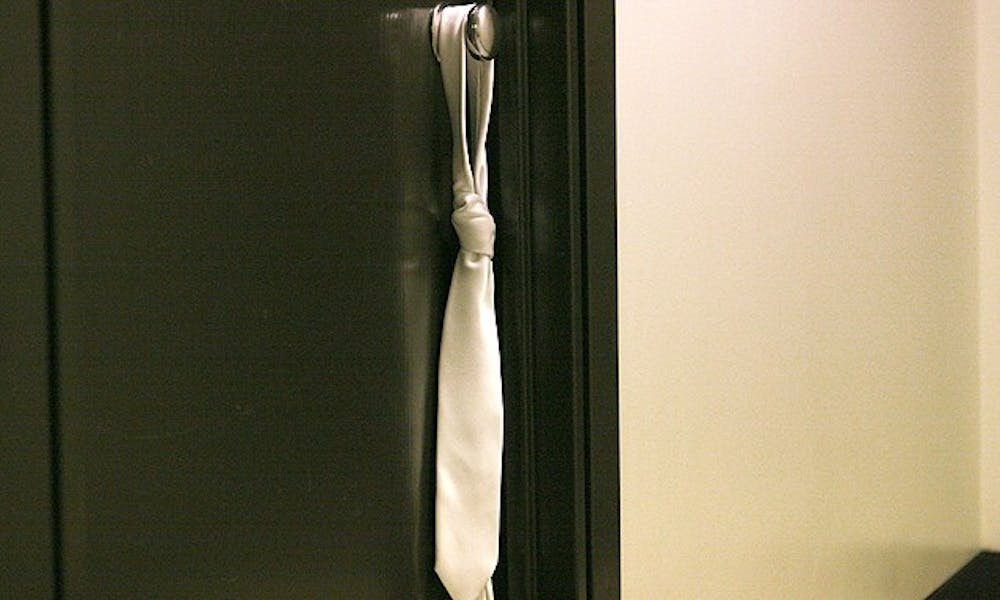Commonly held notions about the Duke hook-up culture may not be as accurate as many students believe.
A study led by Professor of Sociology Philip Morgan sought to identify trends at the University concerning relationships and hook-ups—a loosely defined term that can signify anything from kissing to sex without expectation for a further relationship. The study looks into the role that relationships and hooking up play both between the transition from high school to college and between junior and senior years in college.
Among freshmen who had not had a hook-up within the past year, 10.7 percent reported hooking up at Duke and 24.9 percent reported currently being in a relationship. Just 8.8 percent of seniors who had not hooked up through their junior year said they have hooked up since.
“We are not trying to show that Duke students do not hook-up,” Morgan said. “However, there are a range of diverse relationships at Duke. There are just as many people in committed relationships as hooking up, and many people are just not hooking up at all.”
Morgan said students that hooked up in 2007 also hooked up in 2006, indicating hook-ups in high school for the freshmen surveyed.
The research showed that only about one-third of students in each class at Duke have been part of a college hook-up. Sixty percent of respondents said they have never engaged in sexual intercourse.
Morgan said he was surprised by the rate at which Duke students responded to the request to be surveyed. Of the 1,000 in each class surveyed, 732 freshmen and 723 seniors responded. According to an introduction to the survey, the researchers suspect—but cannot prove—that the results of this study are typical of students at elite universities.
Morgan noted that this study was distinctive because, unlike many studies on the subject, its findings are based off of a representative sample of hundreds of freshmen and seniors. The full findings have not yet been published, but the study’s results were presented at the annual meeting of the Population Association of America, Morgan said.
Many Duke students currently in a relationship have also had significant others in the past. Of freshmen who had been in a relationship before Duke, 70 percent were also in a relationship at the time the study was conducted. Among seniors, 75.7 percent of those who had previously been in relationships reported currently being in one.
The student survey included lifestyle questions to attempt to identify which segments of the Duke population tend to hook up the most. Results revealed that drinking and having friends that hook up, were two factors that strongly affected the phenomenon.
Morgan and other authors of the study, including Suzanne Shanahan, associate director of the Kenan Institute for Ethics, hope to expand their work to include students from other universities and groups.
“We were going to do it at Duke and other universities,” Morgan said. “We are definitely thinking about expanding, because the results of the study were extremely interesting.”
Rachel Seidman, associate director of the program on public policy, history and social change, said the study’s most important finding is the insight it gives to the nature of relationships at Duke. It helps provide an understanding of the type of relationships that form on the University’s campus, she said.
“Whether 90 percent or 30 percent of students are hooking up is not the most important thing in my mind, but the broader questions of how they experience it and whether there are related issues we need to address as a community,” Seidman said in an e-mail.
Get The Chronicle straight to your inbox
Sign up for our weekly newsletter. Cancel at any time.

